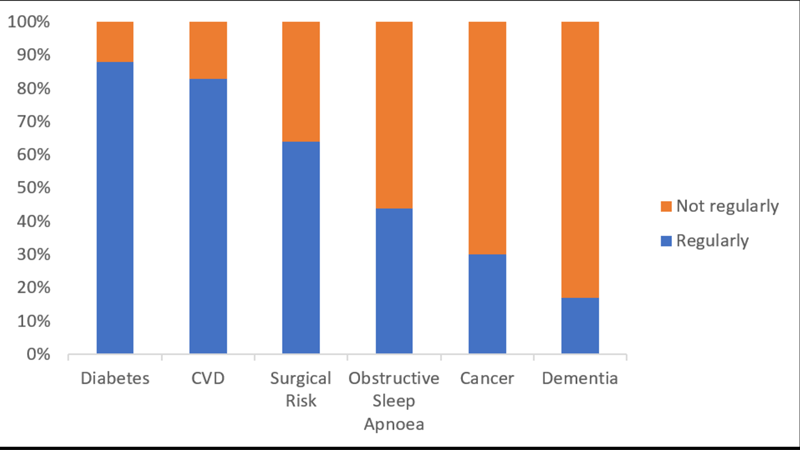The study, published in the Rawal Medical Journal discovered that 88% of men and women were obese, while 7% were overweight, leaving only 5% with a normal body mass index.
An obesity epidemic has gripped Pakistan, where approximately 88% of people have been found obese due to physical inactivity and eating unhealthy diets, according to health and nutrition experts on Friday.
“Around 2,500 people were examined across 11 cities in Pakistan, and 88% of both men and women were found to be obese,” said Saima Rasheed, a leading nutritionist and executive member of the Pakistan Nutrition and Dietetic Society (PNDS), citing a groundbreaking study on obesity in Pakistan.
The study, published in the Rawal Medical Journal (RMJ), discovered that 88% of men and women were obese, while 7% were overweight, leaving only 5% with a normal body mass index.
Accompanied by gynaecologist Prof. Ghazala Mehmud, the PNDS office-bearer stated that while 73% of people considered themselves obese, when BMI was measured according to the Asia-Pacific BMI Classification, more than 88 percent of people were found obese.
“Around 100 percent of people who were examined in Sukkur, Sindh, and Mirpur, Azad Kashmir, were found obese, while over 95 percent of people in almost all cities of Punjab, as well as the capital, were obese.” “Our study found that epidemic obesity is twice as common in women as it is in men,” Saima said.
According to her, 2,496 people took part in this survey, with 66% of them being female and 34% being male. Their average age was 41, according to Saima, who added that only 20%, or 509 of the 2,500 people, were physically fit.
“There were 689 (27.7%) known hypertensives, 532 (21.4%) diabetics, and 757 (30.4%) who had their LDL levels checked in the previous year.” “We discovered that 89% of people thought of obesity as a disease, 73% thought they were obese, and 34% checked their BMI at least once in their lives,” she added.
Obesity was found to limit 63% of everyday activities and 64% of social life in the study. Obesity was found in 97.5% of Sargodha and Rawalpindi residents, 97.1% of Sialkot residents, 95.1% of Islamabad residents, 90.1% of Lahore residents, 83.6% of Karachi residents, 83.2% of Quetta residents, and 72% of Khanpur residents. Obesity is thus a major public health concern.
With the majority of the general population underestimating their weight, public health professionals must conduct targeted awareness campaigns and implement preventive measures to identify various risk factors. “The masses need to be encouraged to make major lifestyle modifications to tackle the pandemic,” she added.
Prof. Ghazala Mehmud said most of the overweight and obese participants were older, hypertensive, had sedentary jobs or home-based jobs, and displayed inappropriate eating habits.
Females were nearly twice as likely as males to be obese or overweight. “In a Gilgit study, 64% of females were obese compared to 37% of males,” she said, adding that females were significantly more obese in one Karachi study, while another Karachi study reported 62% of men and 55% of women as obese.
“Food quality is very important in determining body type.” “In a meta-analysis of 11 studies conducted with South Asian school-going children, the most important risk factors for overweight and obesity were lack of physical activity, long hours of television or video games, and junk and high-calorie food consumption,” she said, adding that the consumption of ready-made food increased daily calorie intake, hence the risk of central obesity and fat deposition.
She stated that in a Pakistani survey, 28% of women overestimated and 10% underestimated their weight, while in an Indian study, “9% of those who perceived themselves to be average weight were found to be overweight or obese, and 34% of those who perceived themselves to be obese were actually overweight or obese,” adding that obesity epidemic was largely underestimated in their recent study.
Both experts advocated for a national action plan to combat obesity, change national dietary habits, and get the nation more physically active in order to reduce the prevalence of obesity and the burden of noncommunicable diseases (NCDs) such as hypertension, diabetes, cardiovascular disease, cancer, kidney disease, and others.
